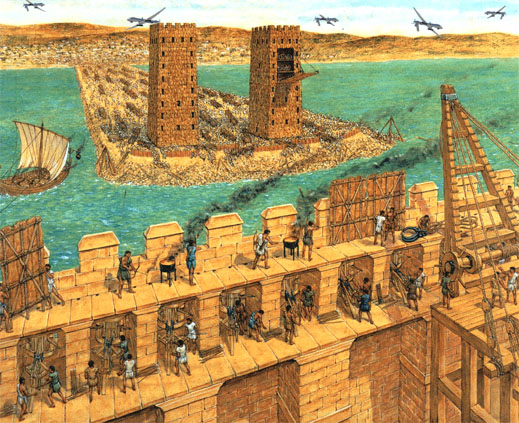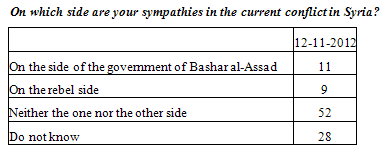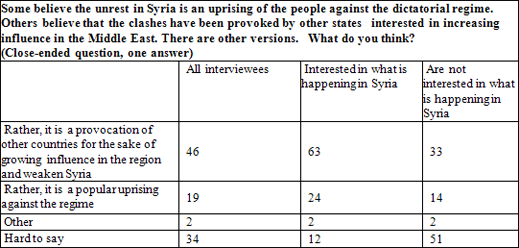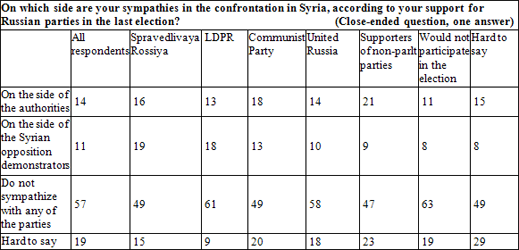
By John Helmer, Moscow
Along the eastern Mediterranean shore, between Tyre, Lebanon, and Tartous, Syria, it’s 191 kilometres as the crow flies – make that as the drone flies. Tyre was the site of one of the great tests of military technology, tactics, and nerve when the Greek, Alexander the Great, besieged the then Phoenician city in 332 BC, breaching the defences after seven months, killing about a fifth of the population, and despatching the rest into slavery.
The Americans, Turks, French, and British claim they have a better idea for the Syrians. Alexandrine crucifixions no – looting and slavery maybe.
They also claim that if it wasn’t for the Russians holed up in their naval fortress of Tartous, and in the chamber of the United Nations Security Council in New York, the enemies of Syria would already be destroyed or in flight, and a calm, civilizing peace descending, along with democracy and prosperity hitherto unknown in those parts. France has already recognized a new government for Syria out of the mercenaries and besiegers. The Turkish and British governments and a clutch of Arab sheikhs have recognized a loose coalition of Syrian opposition groups as a legitimate stage on the way to regime change. The US has announced it is thinking of diplomatic recognition of the coalition, with exception for nasties. “Not everybody who is participating on the ground in fighting Assad are people that we are comfortable with,” President Barack Obama claimed on television on December 10.
Since the Russians are standing in the way, is it western strategy to encourage the fighters to attack Russians, and by inflicting casualties, isolate what the western alliance perceives to be the Kremlin’s support for Bashar al-Assad, and encourage popular Russian opposition to President Vladimir Putin?
Putin was asked yesterday to say whether the Russian policy of support for Assad will end up isolating Russia, not only in Syria, but in the Middle East as well? He answered: “Listen, my dear, after what the interventionists have done in Libya, has Russia lost its position there? Whatever they say in explanation of their position, the [Libyan] state is falling apart. Inter-ethnic, clan, tribal conflicts are under way. Moreover, a tragedy has come about — the murder of the US ambassador. Is this the result of the work they planned? Here I was asked about error, but is not this the mistake? You want us to repeat these mistakes permanently in other countries?”
“We are not concerned about the fate of the Assad regime. We understand what’s going on there and that the family has been forty years in power. Of course, there is demand for change. We are more concerned about what would happen next. We just do not want the current opposition taking power, fighting the current government, which will then go into opposition, and that the conflict will go on forever.”
“Of course, we are interested in the position of the Russian Federation in this region of the world: it is close to us. But we are most interested, not in our own interests, which are not really that much, we practically don’t have them. What special economic relations do we have? No. Or is it perhaps that Mr. Assad came to and from Moscow during his presidency? Sure, he visited Paris and other European capitals more often than us. We are in favour of establishing a solution to the problem, which would rid the region and the country of disintegration and ongoing civil war.”
“What is our proposal, our position? Not that Assad and his regime should be kept in power at any cost, but that from the first the [Syrian] people should agree among themselves as to how they will live on, as to how their safety and participation in state administration will be assured. Only then can the existing order of things begin to change in accordance with these agreements, and not vice versa – [the policy] of break and destroy, and then try to negotiate. I think that an agreement on the basis of a military victory is irrelevant and cannot be effective. What there will be depends primarily on the [will of] the Syrian people itself.”
This has been interpreted among the interventionists as a sign that the Russian leadership is suddenly weakening in its support for Assad. In fact, it’s a statement of the popular Russian consensus towards western intervention, which originated long before Putin himself was promoted to the presidency in 2000. Public opinion polls taken recently show that most Russians favour neither the Assad regime, nor the opposition:

Source: http://www.levada.ru
A poll by VTsIOM in July of this year shows how Russian public attention to the Syrian conflict is concentrated in the older population, those who remember the Russian intervention in Afghanistan. Among them the view is that what is happening in Syria is not the popular democratic uprising depicted in the west. The closer Russians watch what is happening in Syria, the more they believe this is an interventionist plot by outsiders.


The orientation towards events in Syria is not an ideological outcome of political party support in Russia, according to this poll.

Source: http://wciom.ru
Russian academic experts are uncertain and differ among themselves over whether the Syrian rebels are being guided by their foreign sponsors to attack Russians in Syria. According to Boris Dolgov, Senior Research Fellow at the Institute of Oriental Studies, “I would not say so directly that Russian citizens in Syria have become a target of US intelligence, or the Americans who control the radical Syrian factions. But in fact, the US intelligence agencies know and have contacts with a number of Syrian radical groups. But the fact that the American side directly supervises or explicitly directs these radical Syrian armed groups against Russian citizens and aims to destroy them — I would not say so.”
“The issue is more complicated. It is known that there were open threats from the Syrian Free Army, from other radical Islamist armed groups — threats against the Russian diplomatic mission, Russian as well as Ukrainian citizens who are connected somehow with Russia. This is obvious, it is a proven fact. But the fact that these threats and their possible implementation are controlled and directed by the American side — I would not say so.”
Igor Korotchenko, editor in chief of National Defense magazine, believes that targeting Russian citizens in Syria is a tactic of “specific Islamist groups fighting the legitimate government of Syria, the rebels. So they use this tactic of kidnapping, intimidation, in order to have maximum impact on the Russian political leadership and force it to stop supporting the legitimacy of President Bashar al-Assad. But I do not think the Americans orchestrate such things; their role is finance, they set strategic goals. But the Syrian rebels tactically use every opportunity to strike a blow against our country and its image, including conducting an active disinformation campaign.”
Yevgeny Satanovsky, head of the Institute of Middle East Studies, claims the threat to Russians in Syria isn’t an American tactic “because Americans do not control the Syrian opposition and very few people control it at all. Americans in general in the Middle East do not control anything, even though the State Department studiously pretends that it is not so. And in the Syrian situation, the last thing that anyone else in America is interested in is what Russian citizens are doing there.”
 The record of the Russian Navy’s moves towards Syria indicates a combination of tactical motives and strategic assessments that reflect the popular consensus more clearly than the academics. This week, on December 18, the Navy announced it was deploying the Kaliningrad (right), a landing ship from the Baltic Fleet, to Syria. “The official purpose,” according to the Navy website, “is evacuation of Russian citizens located in the zone of armed conflict between rebels and troops loyal to Bashar Assad. Planned duration of the deployment is 2 months. The landing ship Kaliningrad will join the Russian Navy’s task force already stationed in the Mediterranean. By the end of the year, that task force can be reinforced with missile cruiser Moskva, destroyer Severomorsk which is to head for the conflict zone in a few days, destroyer Smetlivy, landing ship Novocherkassk, other warships and auxiliary vessels.”
The record of the Russian Navy’s moves towards Syria indicates a combination of tactical motives and strategic assessments that reflect the popular consensus more clearly than the academics. This week, on December 18, the Navy announced it was deploying the Kaliningrad (right), a landing ship from the Baltic Fleet, to Syria. “The official purpose,” according to the Navy website, “is evacuation of Russian citizens located in the zone of armed conflict between rebels and troops loyal to Bashar Assad. Planned duration of the deployment is 2 months. The landing ship Kaliningrad will join the Russian Navy’s task force already stationed in the Mediterranean. By the end of the year, that task force can be reinforced with missile cruiser Moskva, destroyer Severomorsk which is to head for the conflict zone in a few days, destroyer Smetlivy, landing ship Novocherkassk, other warships and auxiliary vessels.”
The deployment has been practised several times this year, starting in January when a destroyer, frigate and tanker berthed at Tartous. The aircraft cruiser Admiral Kuznetsov anchored in the port roads at the time. Then in July the Navy announced it was despatching the destroyer Admiral Chabanenko, three amphibious assault ships with marines on board, plus a frigate and three auxiliaries. Warnings to the Syrian opposition not to target Russians had already become explicit. Equally plain were the Russian warnings that the Navy was being deployed to break the cordon the western powers were attempting to impose on merchant vessels making deliveries to Syrian ports. But the Chabanenko force didn’t make Tartous. Why the brass changed their mind more than once at the time isn’t clear.
On July 12, the Naval General Staff announced the deployment of the Chabanenko was a drill for “antiaircraft and anti-submarine defence, anti-piracy protection of civil and commercial vessels… the main goal of the campaign is not a call in the Syrian port of Tartous. As expected, only support and auxiliary ships will visit Tartous for replenishment. As to warships, they will be sent there if the technological necessity appears.” It was emphasized by the Navy and then by the Defense Ministry that if there was a port call at Tartous, it was for fuel, water and food, and “not linked to the escalation of the situation in Syria.”
On July 17, the Navy issued a bulletin warning that it was expecting the Syrian rebels would attempt demonstrations and possibly violence when Russian warships docked at Tartous. “Pro-democracy activists, opposing Bashar al-Assad’s government, maybe will organise a protest act against the presence of the Russian warship group in Syrian waters…the opposition will use militant slogans, in which Russia will be convicted as a force providing political support to al-Assad’s regime. Provocative acts are also possible.” The naval bulletin added that “the provocative acts are prepared due to disagreement on the settlement of the Syrian crisis between the Kremlin and the White House.”
On July 26, the Navy announced publicly it would not be calling at Tartous, and reported the Chabanenko was heading west and north. There was another change of mind and rudder bearings on August 3, when the Defense Ministry said the Russian naval squadron might call at Tartous. On August 8, the fleet command insisted its ships were staying out of Tartous and taking on fuel and supplies at sea instead. The last Navy bulletins in August claimed the squadron was heading into the western sector of the Mediterranean, and finally on August 30, home to Severomorsk, where the fleet was congratulated by its commander on “successful mission accomplishment”.
In October, the destroyer Smetlivy passed out of the Black Sea, heading through the Aegean to Tartous, while a six-monthly rotation of Black Sea Fleet auxiliaries known as floating workshops took place. The destroyer joined the cruiser Moskva and two landing ships, the Novocherkassk and the Saratov, with new orders to sail from the eastern Mediterranean through the Suez Canal to an anti-piracy patrol off Somalia, in the Indian Ocean.
It is this squadron which is being recalled to Syrian waters to rendezvous with the Kaliningrad, according to the December 18 Navy announcement.
For Satanovsky this is no more than “a token gesture, like scratching your balls in public to demonstrate you have them. If, for example, US ships operate in the eastern Mediterranean, why can’t we send ours? And how do we tell ourselves that we have a navy, and not just rusty buckets that are laid up with nothing to do. So we send a fleet to raise the flag, to show presence.”
The Russian public thinks differently. It wants to ensure the safety of Russians in Syria if the conflict deteriorates and they are in danger. The public sentiment is also in favour of showing opposition to the interventionist tactics of other powers. The president’s statement yesterday isn’t different, and isn’t changing.











Leave a Reply